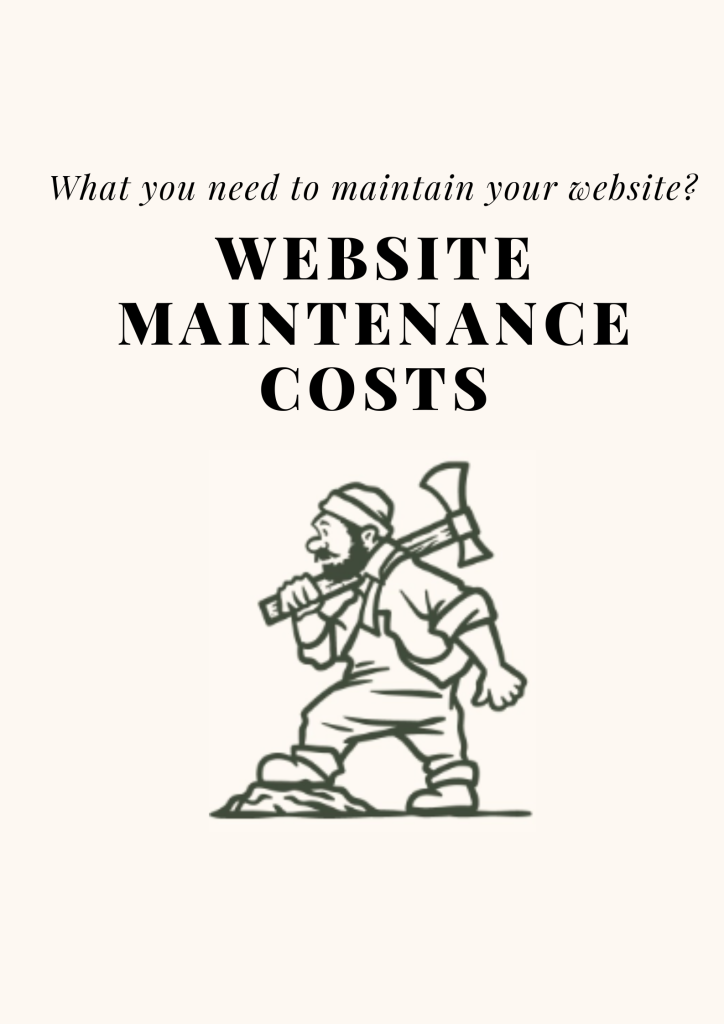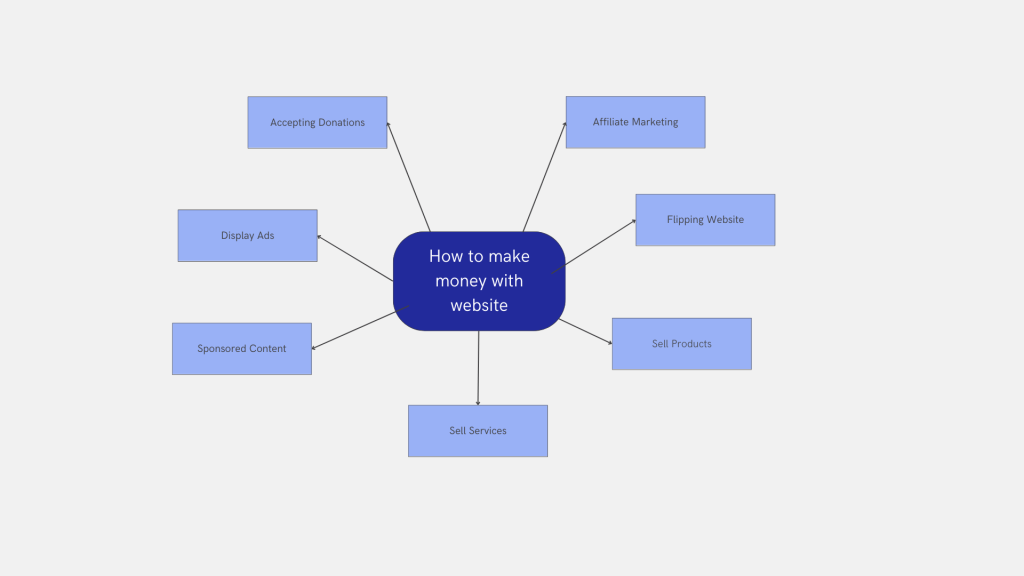
Table of Contents
You’ve heard that your website is the most important digital asset for your business. Managing it well puts you in the position to invite warm leads and grow your business over time.
However, managing a website can be tricky, especially when statistics and studies point to the fact that your audience takes only 50 milliseconds to judge your business based on how your website looks.
Now, that is a tough challenge to scale – to make an impact on your visitors within the first second of their visit. That said, it isn’t undoable. A well-managed website captures audience attention and makes them stay on your pages longer. It helps you present them with more opportunities to enter your sales pipelines.
Explanation of website maintenance and why it’s important
Website maintenance is the process of regularly checking and updating a website to ensure that it continues to function effectively and meet the needs of its users. Website maintenance involves various tasks such as updating software and plugins, monitoring website security, backing up data, fixing broken links, and optimizing website speed and performance.
It’s important to prioritize website maintenance because a website that is not regularly maintained can experience various issues that negatively impact its functionality, security, and user experience. For example, outdated software and plugins can make a website more vulnerable to security threats such as hacking and malware, which can compromise sensitive user data and damage the website’s reputation. Broken links, slow website speed, and poor performance can also frustrate users, leading to a decrease in traffic and revenue.
In addition, a website that is not regularly maintained may not be able to keep up with changes in search engine algorithms, which can result in a lower search engine ranking and decreased visibility. This can be especially problematic for businesses that rely on their website for online visibility and customer acquisition.
By prioritizing website maintenance, website owners can ensure that their website remains secure, functional, and user-friendly, which can lead to increased traffic, engagement, and revenue. Regular website maintenance also helps to protect the website’s reputation and can save time and money in the long run by preventing more serious issues from occurring.
Importance of knowing website maintenance costs
Knowing website maintenance costs is important for website owners because it allows them to budget and plan for the necessary maintenance tasks that are required to keep their website running smoothly. By understanding the costs associated with website maintenance, website owners can ensure that they are able to allocate the necessary resources to keep their website up-to-date and functioning effectively.
Website maintenance costs can vary depending on the size and complexity of the website, the type of website, the frequency of updates and changes, the level of security needed, and the hosting and domain name costs. For example, a large e-commerce website that requires frequent updates and has high-security needs will typically require more resources and investment than a small blog with minimal updates.
By knowing the costs associated with website maintenance, website owners can make informed decisions about how to prioritize their maintenance tasks and allocate resources accordingly. This can help to prevent unexpected costs and ensure that website maintenance is a manageable and sustainable process.
Furthermore, knowing website maintenance costs can help website owners to make strategic decisions about website design and functionality. For example, if a website owner knows that a particular feature or plugin requires high maintenance costs, they may choose to forgo that feature in order to reduce maintenance expenses. Knowing website maintenance costs is important for website owners because it allows them to plan and budget for necessary maintenance tasks, make informed decisions about website design and functionality, and ensure that website maintenance is a manageable and sustainable process.
Factors affecting website maintenance costs
Several factors can affect website maintenance costs, including:
- Size and complexity of the website: The larger and more complex a website is, the more time and resources are required to maintain it. A website with more pages, features, and functionality may require more frequent updates and backups, which can increase maintenance costs.
- Type of website: Different types of websites have different maintenance requirements. For example, an e-commerce website that processes financial transactions and handles sensitive customer data will have higher security requirements and maintenance costs than a simple blog or portfolio website.
- Frequency of updates and changes: Websites that require frequent updates and changes, such as blogs or news websites, will have higher maintenance costs than websites that require fewer updates.
- Level of security needed: Websites that handle sensitive user data, such as personal information or financial transactions, require a higher level of security and maintenance. This includes regular updates of software and plugins, as well as regular backups of website data.
- Hosting and domain name costs: The cost of hosting and domain name registration can also impact website maintenance costs. Websites that require high-performance hosting or domain names with premium extensions may cost more to maintain.
Other factors that may affect website maintenance costs include the level of customization required, the need for mobile optimization, and the need for ongoing technical support.
It’s important to note that website maintenance costs can vary widely depending on these factors, and it’s essential for website owners to understand the maintenance requirements of their website to effectively budget and plan for these costs.
Common website maintenance tasks
Website maintenance involves a variety of tasks that help to ensure that a website remains secure, up-to-date, and functioning effectively. Some common website maintenance tasks include:
- Regular software updates: Websites rely on various software components, including the content management system (CMS) and plugins. Regular updates of these components are essential to address security vulnerabilities, bug fixes, and compatibility issues.
- Backing up data: Regular backups of website data, including files and databases, are important in case of data loss or corruption. Backups can be performed manually or automatically and should be stored securely.
- Monitoring website uptime and performance: Regular monitoring of website uptime and performance can help to identify issues such as downtime, slow page load times, and broken links. This can help website owners to take corrective action and maintain a positive user experience.
- Ensuring website security: Websites can be vulnerable to security threats such as hacking, malware, and phishing attacks. Regular security checks, such as vulnerability scans and malware checks, are important to maintain website security.
- Content updates and changes: Websites that regularly publish new content, such as blog posts or product listings, require ongoing updates and changes. This can include updating images, text, and links, and ensuring that content is optimized for search engines.
- Search engine optimization (SEO): Regular SEO tasks, such as keyword research and optimization, can help to improve website visibility and search engine rankings.
- Ongoing technical support: Website owners may require ongoing technical support to address issues such as broken links, error messages, and compatibility issues.
By performing these common website maintenance tasks, website owners can ensure that their website remains secure, up-to-date, and functioning effectively. Regular maintenance can help to prevent issues before they occur and can save time and money in the long run by reducing the risk of more serious issues.
Lets answer the first question first: What are the recurring cost involved in running a website?
Recurring costs in a website are the costs that need to be paid regularly, typically on a monthly or annual basis, to keep the website running and maintained. Some examples of Website maintenance costs include below:
| Category | Cost in USD / Year |
| Domain Name | $10 to $50 |
| Hosting | $24 to $300 |
| Email hosting | $0 to $120 per mailbox /year |
| SSL certificate | $0 to $1000 |
| Software updates and maintenance / Fixing issues (Technical support) | $600 to $6000 |
| Self-managed Backup and Recovery | $70 to $400 |
| SEO optimization | $60 to $2400 |
| Website content, blogs, articles | $1/word to $3000 per project |
| Social Media Marketing | $4000 to $60000 |
| Email Marketing | $0 to $4800 |
| Website Monitoring | $0 to $300 |
Let us understand what website management entails. Also, which parts of the maintenance you should do it yourself and for which parts you should hire professional help.
The cost of website maintenance can vary depending on several factors, as discussed earlier. Below is a breakdown of some of the common costs associated with website maintenance:
- Website hosting: Website hosting is the cost associated with hosting the website on a server. The cost of website hosting can vary depending on the level of service required, such as shared hosting or dedicated hosting. The cost of website hosting can range from $3 to $500 per month.
- Domain name registration: A domain name is the web address of the website, and domain name registration is the cost of reserving the domain name for a specified period. The cost of domain name registration can vary depending on the domain extension and registrar. The cost of domain name registration can range from $10 to $100 per year.
- CMS and plugin updates: Content management system (CMS) and plugin updates are necessary to keep the website secure and up-to-date. The cost of CMS and plugin updates can vary depending on the number of updates required and the level of support required. The cost of CMS and plugin updates can range from $50 to $500 per month.
- Backup and security services: Backup and security services are essential to maintain the security of the website and protect against data loss. The cost of backup and security services can vary depending on the level of service required, such as daily or weekly backups, and the level of security required. The cost of backup and security services can range from $50 to $500 per month.
- Content creation and updates: The cost of content creation and updates can vary depending on the type and amount of content required. The cost of content creation and updates can range from $50 to $500 per month.
- Technical support: Technical support is necessary to address issues such as broken links, error messages, and compatibility issues. The cost of technical support can vary depending on the level of service required, such as email or phone support. The cost of technical support can range from $50 to $500 per month.
It’s important to note that these costs are estimates and can vary depending on the specific needs of the website. Additionally, some website owners may choose to perform some of these tasks themselves, which can help to reduce the overall cost of website maintenance.
Out of this some of the component or services like Domain name, hosting , SSL will be provided by your hosting provider, at times you will get this all bundled with the hosting package you purchase. It might include very basic support.
Excluding those component / services can be provided by individual service providers for instance technical support service provider, they will generally provide services for WordPress Website maintenance or support, which will include services like Software updates and maintenance, fixing broken sites, virus /malware cleanup, backup, website monitoring for uptime and performance at times this provider will also provide cloud-based hosting service bundled with their packages. This kind of service provider will charge either one time or charge on month-on-month basis based on your needs and services they provide. If your website is not created on platform like WordPress, you might be using something custom made or something like WIX, Webflow or SquareSpace as those no-code website builders falls into category of SaaS tools, means as a consumer you will not have to worry about maintaining the software, you will have to just worry for Domain name, SSL, Content and SEO reducing overall recurring cost.
What can Website Maintenance and Support Services do for You?
Every maintenance service executes a core set of maintenance services for your website and offers add-on services as extra to take your website that extra mile.
Based on your requirements and budget, you can select the scope of the service provider.
Core Maintenance and Support
- Primary support, like answering all your queries regarding your website usage.
- Fixing any issues
- Monitoring your website uptime & performance
- Monitoring your domain, SSL expiry dates
- Update management for peripherals, like plugins, themes, and platform
- Website backup operations
- Basic level security
Service Add-Ons / Advanced Scope
- Optimizing website performance
- Custom development tasks
- Content updates
What is the frequency of website maintenance?
The frequency of website maintenance required can vary depending on several factors, including the type and size of the website, the complexity of the website, and the services included in the maintenance package.
Ideally, all the maintenance tasks should be executed on Monthly basis for smaller websites, for larger website it should be weekly, to ensure you website is always performing as expected, its upto date.
Website Maintenance do it yourself or hire an agency?
While taking a call for your website, should you maintain yourself (DIY) or hire an agency, while both valid options, and the best choice will depend on your specific needs and resources. Here are some pros and cons of each option to consider:
Hiring a website maintenance agency:
Pros:
- Professional expertise: A website maintenance agency will have a team of professionals with the necessary knowledge and skills to keep your website running smoothly and securely.
- Time-saving: Hiring an agency allows you to outsource the maintenance tasks, so you can focus on other aspects of your business.
- Comprehensive coverage: A website maintenance agency will typically provide a wide range of services such as software updates, content updates, security, performance monitoring and analytics, technical support and troubleshooting, and SEO optimization.
- Scalability: A website maintenance agency will be able to handle the scale of your website as it grows.
- Subscriptions: You will have to still manage your hosting , SSL and Domain name subscription, renew them as and when required yourself.
Cons:
- Cost: Hiring a website maintenance agency can be more expensive than doing it yourself, especially for small businesses.
- Less control: When you outsource website maintenance, you may have less control over the specific tasks and how they are done.
Doing it yourself (DIY):
Pros:
- Cost-effective: Doing website maintenance yourself can be more cost-effective, especially for small businesses, but also consider your time.
- More control: When you do website maintenance yourself, you have more control over the specific tasks and how they are done.
Cons:
- Time-consuming: Doing website maintenance yourself can be time-consuming and take away from other aspects of your business.
- Lack of expertise: If you don’t have the necessary knowledge and skills, you may not be able to properly maintain your website.
- Limited coverage: Doing website maintenance yourself may not cover all the necessary tasks and may not be able to handle the scale of your website as it grows.
It’s important to evaluate your own resources, such as time, skills, and budget, and choose the option that is the best fit for your specific needs. You can also opt for a hybrid approach, where you outsource some tasks while handling other tasks yourself.
Conclusion:
Website maintenance costs vary depending on the website’s size and type, but they are often around $100 – $5000 and even more, depending on which options you had selected while building the Website. Website built with Some software like WordPress can be more flexible in terms of adding functionality, will require more bandwidth to maintain. While if you had built your website with One of the SaaS tools like WIX, Webflow or SquareSpace you will have less flexibility, & you will have to be dependent on the feature provided by those tools.


